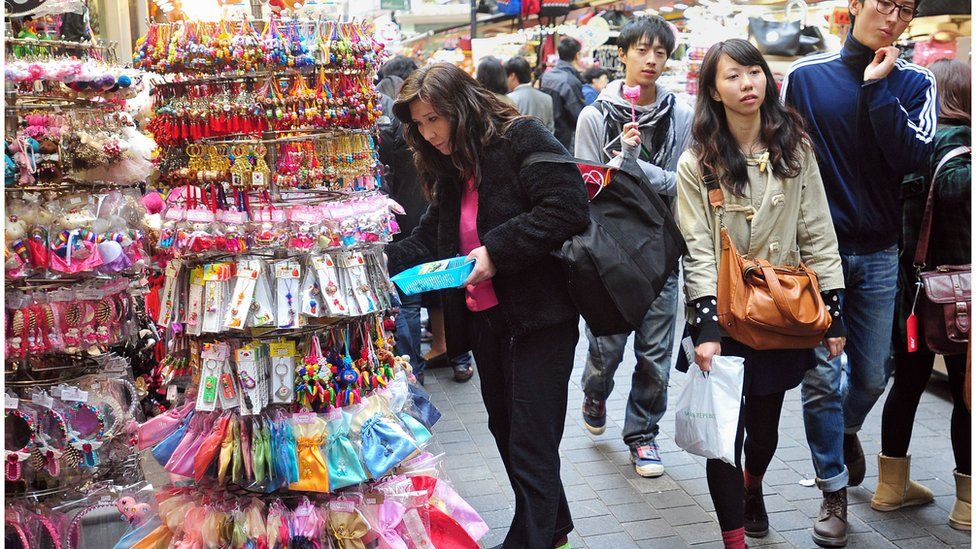‘Happiness Fund’ to help pay debts for up to 1.6m Koreans
- Published

South Korea is to write-off the debts of as many as 1.6 million people in a move designed to ease the financial burden on low-income individuals.
The scheme is open to certain Koreans who have struggled to repay debts of less than 10m won ($9,128; £6,826).
Eligible people can apply to the government for debt relief from next February.
They will be paid in part out of the government's "National Happiness Fund", set up to help troubled borrowers.
To qualify for the scheme, individuals must prove they earn a monthly income of less than 990,000 won ($910), and show they have struggled to pay back the debt for more than a decade.
The plan could clear as much as 6.2 trillion won in bad debts.
The country's Financial Services Commission, which will administer the scheme, said the policy was designed to help individuals make a fresh start by relieving their debt burdens.
'Confucian capitalism'
The debts will be written-off in part through funds sourced from other lenders, and through the National Happiness Fund.
The Happiness Fund was established in 2013 to help the poorest Koreans manage their debt. The scheme was a key campaign pledge of the former South Korean president, Park Geun-hye, who vowed to tackle growing inequality in the country.
Since it was founded, the fund has provided 6.8 trillion won in debt restructuring.
Jasper Kim, chief executive of Asia-Pacific Global Research Group, described the latest plan to clear private debts for poorer Koreans as a "good move".
"It is a unique form of Confucian capitalism, whereby the state is often viewed as a patriarchal protector of the people," Mr Kim said.
He said household debt was a significant issue in South Korea. But Mr Kim added the scheme "does not directly address the higher levels of individual debt incurred by middle and higher-income households", which may be more of a concern for policymakers.
It comes amid signs of growing strength in the South Korea's economy, Asia's fourth largest. The country's central bank raised interest rates for the first time in more than six years on Thursday, removing emergency stimulus in place since 2012 to boost the economy.
The government expects the economy to expand by more than 3% this year, up from the 2.8% average growth rate for the past five years.
- Published28 September 2017
- Published4 October 2017
- Published8 January 2017